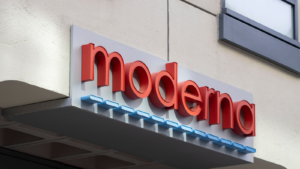7 F-Rated Biotech Stocks You Shouldn’t Touch With a 10-Foot Pole
Investing in biotech stocks can be challenging. The rewards can be great when your company hits on a popular drug, treatment or product. But there are also plenty of pitfalls that make such investments a risk.
Biotech stocks represent companies that develop products and technology involving genetics and molecular biology. Some of them develop new drugs, therapies and medical treatments.
Others develop genetically modified organisms to improve crop yield or the nutritional content of food.
But it’s difficult. Biotechs trying to develop drugs or therapies go through a long, expensive clinical trial process. At any point, a company could be forced to pull the plug on the drug should the trial not show effectiveness.
Even after that process is over, the drug or therapy needs to get regulatory approval before it can go to market.
On top of that, bringing a drug to market is expensive. It takes a lot of research and development money. That could be a challenge for a new company with few reserves and isn’t yet bringing in revenue. Often, small companies have a relatively small pipeline of potential drugs and treatments.
There are some solid biotech stocks on the market. But many more deserve an “F” rating from the Portfolio Grader. If you are considering an investment in one of these F-rated biotech stocks, think twice.
Biocept (BIOC)

Biocept (NASDAQ:BIOC) is a struggling company that benefited from the Covid-19 pandemic by providing testing services. But now that the need for testing has dropped, Biocept’s profits have fallen.
Despite a 1-for-30 stock split in May, BIOC stock is barely at $1 per share, falling 93% in 2023.
Biocept, which stopped its Covid-19 testing in February, specializes in molecular oncology diagnostics and provides testing services to help physicians detect and monitor cancer biomarkers from cerebrospinal fluid samples.
It’s now conducting a clinical trial hoping to make its proprietary treatment a recognized standard of care.
Revenues for the second quarter were $600,000 in revenue, compared to $5.8 million a year ago. The company’s losses came in at $3.6 million, or $3.50 per share.
The company has $6.6 million cash on hand, with $3.6 million coming from a public offering of 1.17 million shares of stock.
Biocept has an “F” rating in the Portfolio Grader.
Sonnet BioTherapeutics (SONN)

Sonnet BioTherapeutics (NASDAQ:SONN) is a North Carolina-based biotechnology company that also has a focus on oncology.
Sonnet is developing a technology that allows a fully human single-chain antibody fragment to bind to human serum albumin, the main protein in plasma.
Sonnet says that its therapy allows treatment to be transported to targeted tissues with better penetration and without invasive, toxic therapies.
However, Sonnet is far from bringing its treatment to market. It has six programs, but only one has reached Phase 2 testing. That explains why revenue for the second quarter was only $36,000, while expenses were nearly $4 million.
SONN stock is down 74% this year and has an “F” rating in the Portfolio Grader.
Moderna (MRNA)

Unlike the first two names on this list, Moderna (NASDAQ:MRNA) is well-known and mature. It has a market capitalization of $44 billion, and it’s best known for its role in developing a Covid-19 vaccine.
But even big biotech companies can run into trouble, and Moderna’s in that spot now. The Covid-19 vaccine brought in $36 billion in revenue in the last two years, but that profit is drying up quickly.
Revenue in the second quarter was $344 million, down nearly 95% from a year ago. The company posted a loss of $3.62 per share – but even that huge number was better than the $4.12 loss per share analysts expected.
One glimmer of hope for MRNA stock is that its vaccine is said to be effective for the coronavirus wave that is currently causing hospitalizations to creep up in the U.S.
The White House is urging people to get new boosters – and if that happens, Moderna may be able to stop the bleeding, at least in the short term.
But if you hope that MRNA stock will rebound to its previous levels, you’re in for a disappointment. MRNA stock is down 35% this year and has an “F” rating in the Portfolio Grader.
Windtree Therapeutics (WINT)

Windtree Therapeutics (NASDAQ:WINT) is a Pennsylvania biotech company that works to treat late-stage cardiovascular disorders such as cardiogenic shock and acute heart failure.
But it hasn’t been a good year. Windtree stock is down 85% this year, with much of that coming in May when its chairman, James Huang, stepped down. Huang said in his resignation letter that the company stock doesn’t reflect its true worth and that Windtree was wrong to transfer ownership shares from current shareholders.
Windtree reported a second-quarter net loss of $6.6 million, or $1.64 per share. The company raised $12.4 million in the quarter and has enough cash to sustain operations through the first quarter of 2024.
WINT stock has five drugs in its pipeline, four in Phase 2 testing. Ideally, it will find a way to make revenue before money runs out next year, or it will have to raise more funds, possibly diluting shareholder value.
Windtree has an “F” rating in the Portfolio Grader.
Fresh Tracks Therapeutics (FRTX)

Fresh Tracks Therapeutics (NASDAQ: FRTX) is a clinical-stage pharmaceutical company in San Diego.
The company works to develop therapeutics for people who suffer from autoimmune diseases, inflammatory conditions and other disorders.
It has four drugs in its pipeline, but only one is in Phase 1 testing: an oral treatment for autoimmune diseases such as dermatitis, rheumatoid arthritis and Type 1 diabetes. Its other three candidates are in the discovery or pre-clinical stages.
That means Fresh Tracks can’t expect to see significant revenue any time soon; it will be burning through money on research and development. The company said it had cash and cash equivalents of $8.9 million at the end of June, which should be enough to fund the company for another 12 months.
It reported a net loss of $2.3 million for the quarter, with revenue of only $100,000.
FRTX stock is down 58% this year and has an “F” rating in the Portfolio Grader.
Tenax Therapeutics (TENX)

Tenax Therapeutics (NASDAQ:TENX) is a pharmaceutical company that studies and develops treatments for cardiopulmonary diseases.
Its primary focus is treating pulmonary hypertension, a condition affecting the lungs and heart. As many as 50 million people are estimated to have pulmonary hypertension.
Tenax is planning to conduct Phase 3 testing for its oral levosimendan drug to treat pulmonary hypertension with heart failure and secured a patent for the drug that gives it a potential commercial runway through the end of 2040.
However, that would be a long time for investors to wait for profits. Earnings for the second quarter showed a net loss of $1.1 million or 5 cents per share. The company has $13.3 million in cash and cash equivalents.
It’s possible that Tenax could be a solid long-term play. But with no revenue in the foreseeable future and the stock price down 81% this year, it’s clear why TENX stock has an “F” rating in the Portfolio Grader.
Tracon Pharmaceuticals (TCON)

Tracon Pharmaceuticals (NASDAQ: TCON) is a California-based biopharmaceutical company. It’s working on developing and commercializing cancer treatments.
Its top candidate, envafolimab, is being developed to treat sarcoma. It is in various stages of testing in the U.S., Japan and China for its effectiveness against solid tumors, gastric cancer and biliary tract cancer.
The company, however, is tiny, with a market capitalization of less than $8 million. That doesn’t give it much breathing room for research and development.
Also notable is the stock price, which, at less than 25 cents per share, is down 85% this year. Much of that came in May following a legal dispute with I-Mab (NASDAQ:IMAB). The conflict was over a collaboration agreement to develop the CD73 antibody uliledlimab. The deal ended with an agreed-upon $9 million fee, but Tracon sought $200 million in damages.
The judge ruled Tracon would not receive damages and would have no right to future economic with I-Mab. But Tracon did get $13.5 million in legal fees, which the company said would help fund the company into 2024.
TCON stock has an “F” rating in the Portfolio Grader.
On the date of publication, neither Louis Navellier nor the InvestorPlace Research Staff member primarily responsible for this article held (either directly or indirectly) any positions in the securities mentioned in this article.

